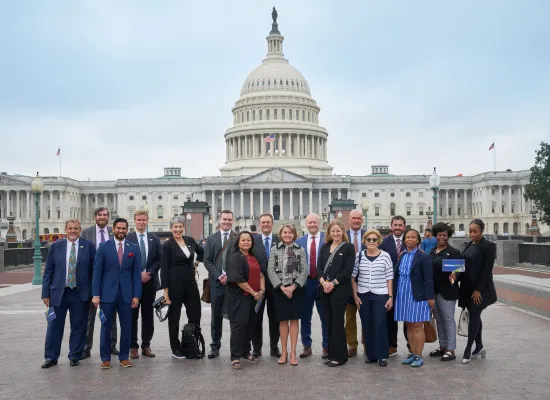
Reducing Health Disparities: Exploring How Implicit Bias Influences Health Care

AMCP CEO
During AMCP 2022, I attended the workshop “A Primer on Bias from Discovery to Implementing Strategies to Address,” led by the dynamic Dr. Kali Cyrus. Dr. Kali, as she is known, set the stage for the discussion by telling the audience, “This isn’t about ticking a box; your actions impact others’ health.”
Dr. Kali explained that we are all on an ongoing journey, one in which we should try to understand that everyone has biases. That is a message we do not hear often and one that might prompt us to initially think, “What? Not me!”. However, by the end of the workshop, it was clear that she was right and that we must recognize our biases and the impact they have and work to address them. Thankfully, Dr. Kali provided tools for us to help identify our implicit biases and uncover strategies and approaches to specifically address them in health care – enabling better, more informed decision making.
In my small group, we examined a case study involving a 21-year-old trans Latinx woman living in Alabama who was seeking PrEP, a prescription medication for adults and adolescents at risk for HIV. This was a case study right out of the peer-reviewed medical literature. Our group, which included attendees from a health plan, a pharmacy benefit manager, and a pharmaceutical company, discussed aspects of this patient case that might lead a health care professional to be biased. The exercise was definitely illuminating.
During the workshop, we also considered Academic Medicine’s “Recognizing Privilege and Bias: An Interactive Exercise to Expand Health Care Providers’ Personal Awareness.” The study authors write that while there is increasing awareness of social determinants of health, health care disparities among sociocultural groups persist. “Health care providers’ unconscious bias resulting from unrecognized social privilege is one contributor to these disparities,” according to the paper.
Another learning opportunity in the workshop came from AMCP’s own partnership forum proceedings published in the Journal of Managed Care & Specialty Pharmacy. The forum was entitled, “AMCP Partnership Forum: Principles for Sound Pharmacy and Therapeutics (P&T) Committee Practices: What’s Next?” One of the many relevant findings from the forum was: “The informed decisions that stem from the P&T committee’s scientific assessment of products allow organizations to ensure that all patients have access to needed medications while also remaining good stewards of limited health care dollars … [A]s health care dynamics change, it is important to advance P&T committee best practices to meet the future needs of population health decision making.”
Finding Common Ground
During the workshop, we were able to see how different experiences directly relate to different outcomes. Taking these concepts further, it is imperative to use a common language that promotes understanding in order to engage in meaningful dialogue and identify concrete actions our profession can take. To that end, we have compiled a glossary of terms containing terminology meant to improve communications among providers, patients, caregivers, and colleagues. Among the terms defined are those that can be used to standardize data collection for race, ethnicity, and gender identity. We view this glossary as a resource and foundation for dialogue. Available on AMCP’s website, the glossary can be used in daily practice to implement or enhance existing diversity, equity, and inclusion efforts.
AMCP Summit
AMCP’s inaugural summit, Addressing Health Disparities, was held virtually on June 9, 2022. This important summit brought together thought leaders to continue the health disparities discussion and work toward common solutions. Your voice and experience are valuable as we continue our important work in this area.
Access the AMCP Summit on addressing health disparities now on demand on AMCP Learn.
Upcoming Events
AMCP offers a wide variety of educational opportunities, from events and webinars to online training.






